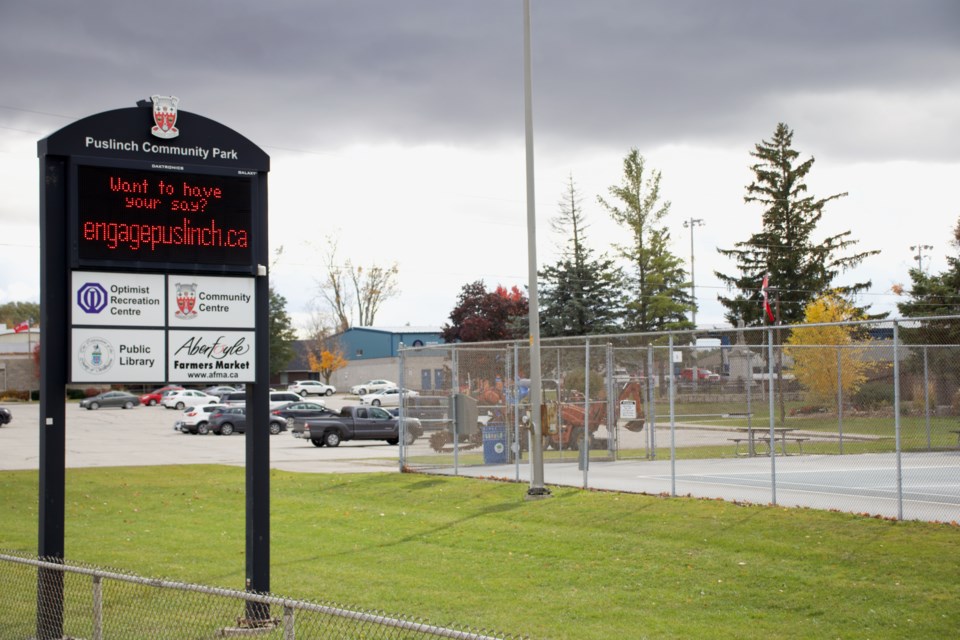PUSLINCH ‒ Seventeen local properties in Puslinch could soon be redesignated as heritage.
According to a new report, the selected properties were prioritized based on the discussions and work prepared by the previous term Heritage Advisory Committee.
Staff will bring forward a report with priority properties for designation in 2024 during their December council meeting.
They are also recommending further consultations with the city of Guelph and Wellington County with respect to the designation of 880 Victoria Rd and 4217-4223 Watson Road South as the properties are owned by the city and the county respectively.
The full list of properties to be designated will be discussed at a council meeting next week and are included below:
1. 22 Victoria Street, Morriston
- The only Evangelical German church within the township, the property is still active as the Morriston United Church and was built by German immigrant families who comprised the earliest European settlers in the Morriston area.
2. 32 Brock Road, Puslinch
- Known as the former School Section Four, the report said the property possesses significant cultural heritage value due to its association with the educational and social history of Puslinch and Aberfoyle and represents efforts to provide free public elementary education to the local community.
3. 42 Queen Street, Morriston
- Associated with the commercial history of the township, the property is directly associated with R.B. Morrison, who had the store built and for which the Morriston was named.
4. 43 McClintock Drive, Puslinch
- Home of the former 1880 frame Puslinch Lake Hotel, this location has ties to the commercial and hospitality industry in and around Puslinch Lake. The property is also associated with George Sleeman of Guelph who owned the hotel and is the last remaining hotel on the only natural lake in the region.
5. 46 Queen Street, Morriston
- Formerly known as the "renowned" Morriston Hotel, this property catered to the needs of numerous visitors and residents around the Morriston area, playing a "pivitol role" in shaping the downtown during the mid to late 19th century while contributing to the area's rapid growth and prosperity.
6. 78 Queen Street, Morriston
- One of the three founding families of Morriston, this property is associated with the Morlock family and houses the family's first residence, an 1854 fieldstone cottage and forms a streetscape representing three generations and a period of 60 years.
7. 80 Brock Road, Puslinch
- Initially built in 1863 by George McLean before it was subsequently rebuilt in 1869 by him following a fire, this property remains the only extant grist mill structure in Puslinch and transformed into a restaurant in later years, "effectively highlighting its enduring importance and adaptability over time."
8. 80 Queen Street, Morriston
- This property was also associated with the Morlock family and is located in close proximity to the residences of the other founding families of Morriston, presenting a streetscape of the late 19th and early 20th century.
9. 84 Queen Street, Morriston
- Built by Christian Morlock, the son of the town's pioneer settler, John Christian Morlock, this property is adjacent to several other Morlock houses and "shows outstanding local craftmanship."
10. 319 Brock Road, Puslinch
- Named “Duff’s Presbyterian Church," this 1854 stone church has served as a religious and social institution for Scottish Presbyterian immigrants and families since its construction and is associated with several adjacent heritage properties, including the Crown Cemetery.
11. 600 Arkell Road, Puslinch
- One of the first United Churches in Ontario, this property is considered notable for its establishment with the Wesleyan Methodist denomination and its subsequent evolution into a United Church property.
12. 834 Watson Road South, Puslinch
- Considered a Puslinch landmark, the schoolhouse located on the property served the community of Arkell and surrounding farms as a place for elementary education and social events for a century and is located in close proximity to other recognized heritage buildings.
13. 4492 Watson Road South, Puslinch
- Located in the hamlet of Corwhin, this property features a one-room schoolhouse constructed in 1885 and has "exceptional and distinct stone masonry attributed to local masons, William Laing and Thomas Taylor."
14. 4614 Wellington Road 32, Puslinch
- The church on this property played a vital role as a gathering place for various denominations over the years with its historical significance further emphasized by its long-standing service to the residents, making it a "cherished location" with a "rich and meaningful past."
15. 6705 Ellis Road, Puslinch
- Also known as the Ellis Chapel, this property is the only example of a Gothic chapel built in the vernacular form from locally sourced materials in the township and is "deeply connected" to the Ellis family, as it was originally constructed on the land they owned and built by family members.
16. 6990 Wellington Road 34, Puslinch
- This property features a schoolhouse, while typical in its construction, was heavily altered throughout its history. However, given its importance as a schoolhouse, the property is considered a landmark due to its importance to many generations and families.
17. 7156 Concession 1, Puslinch
- Including both the 1882 Knox Presbyterian Church and the associated Knox Presbyterian Cemetery, this property’s design features rural Presbyterian Church vernacular architecture and serves as a marker of the nineteenth-century Highland Scots Presbyterian immigration that characterized the southern part of the township.
Isabel Buckmaster is the Local Journalism Initiative reporter for GuelphToday. LJI is a federally-funded program.



